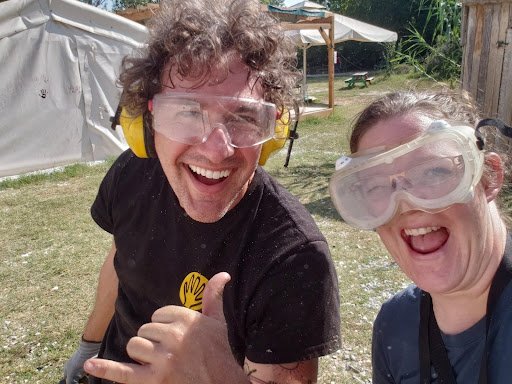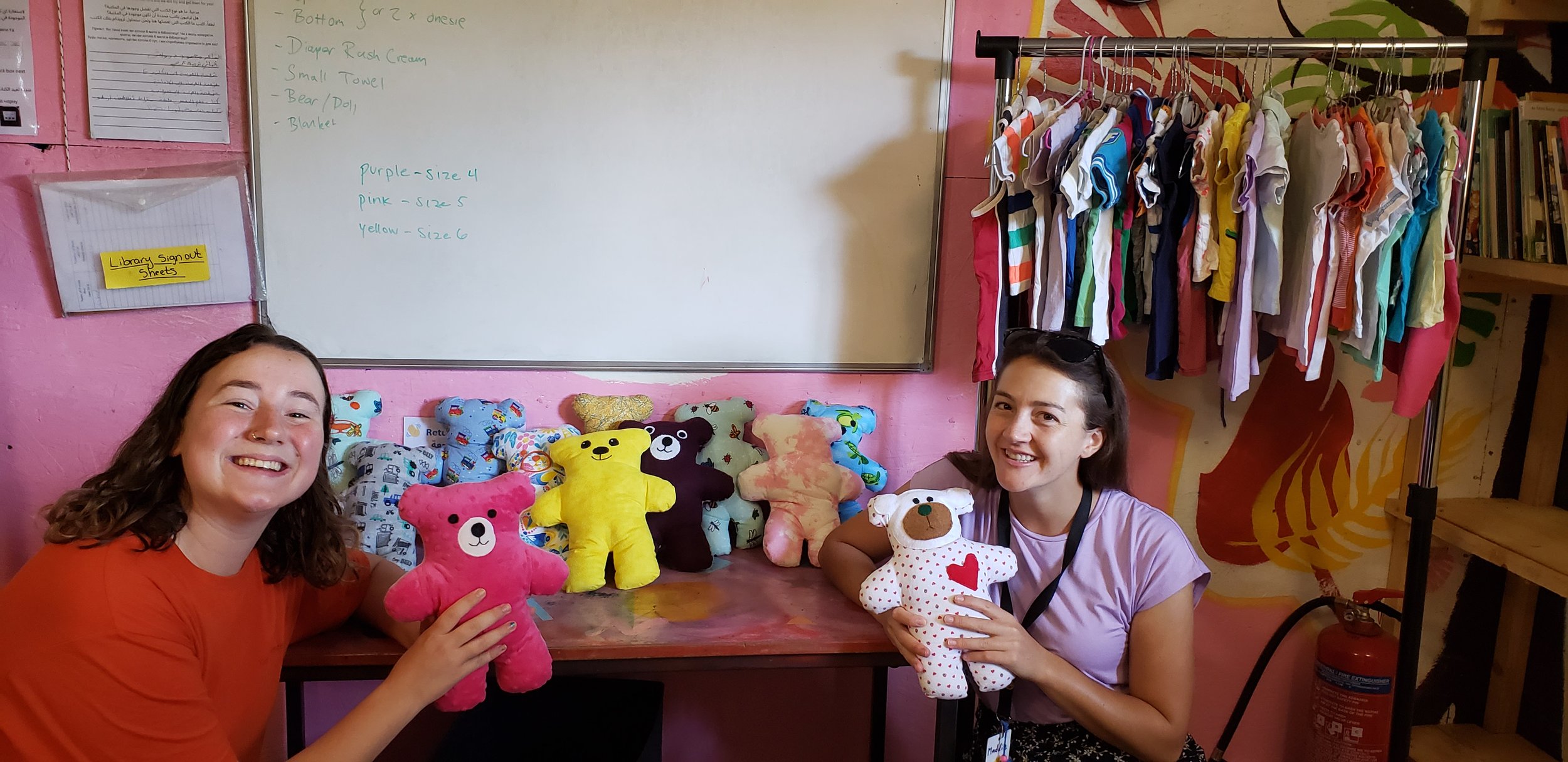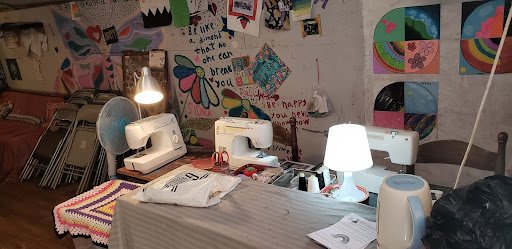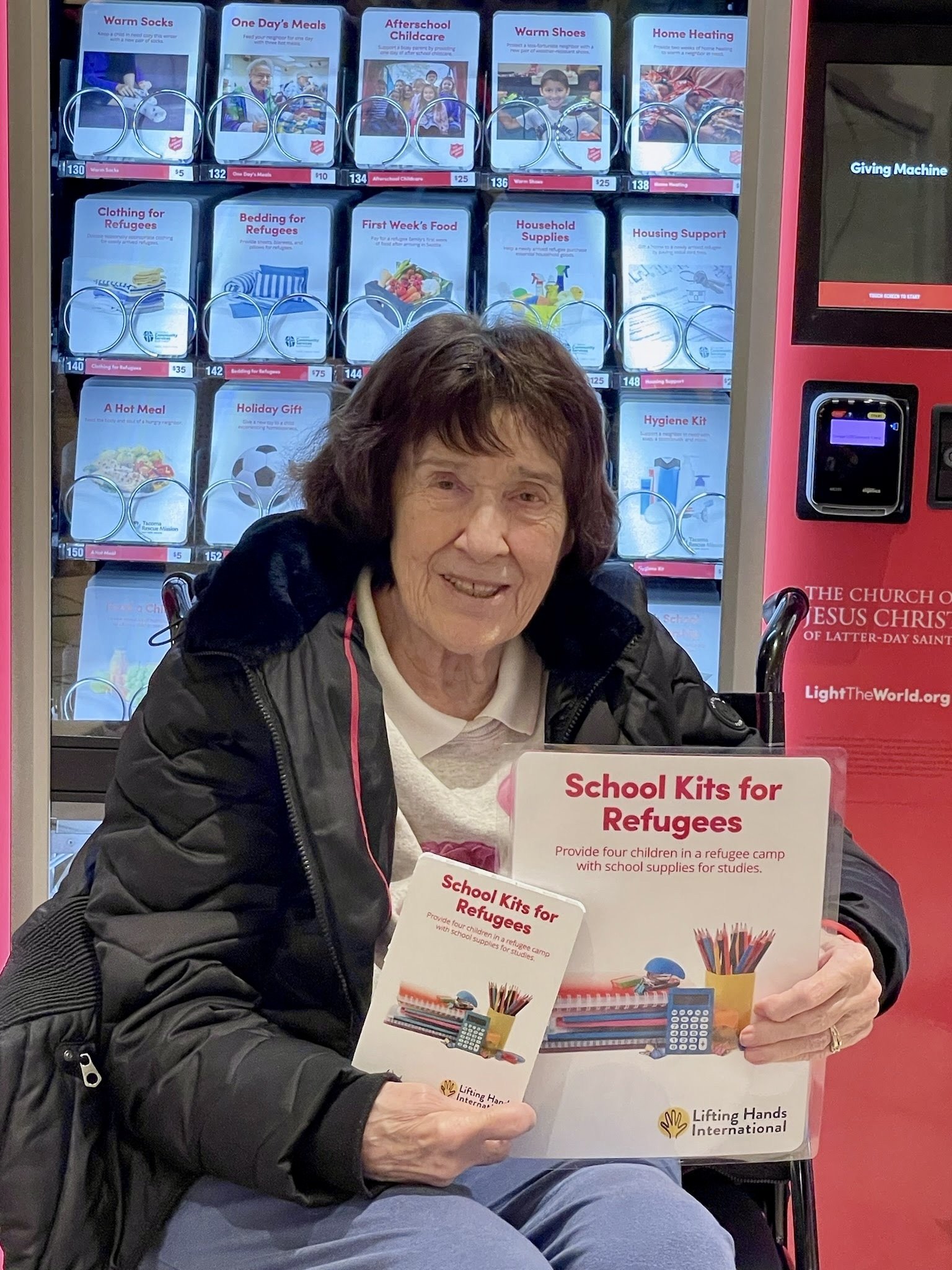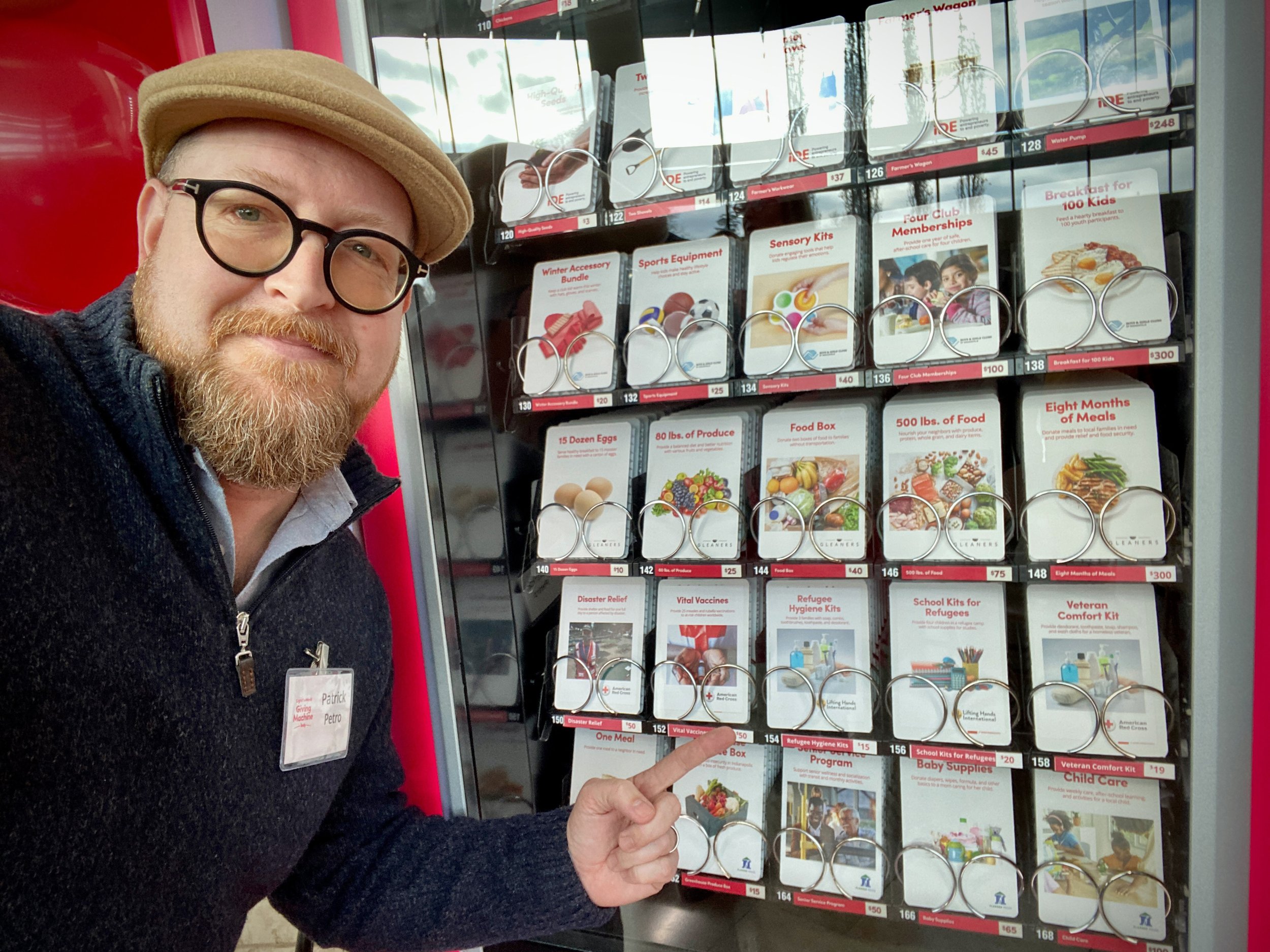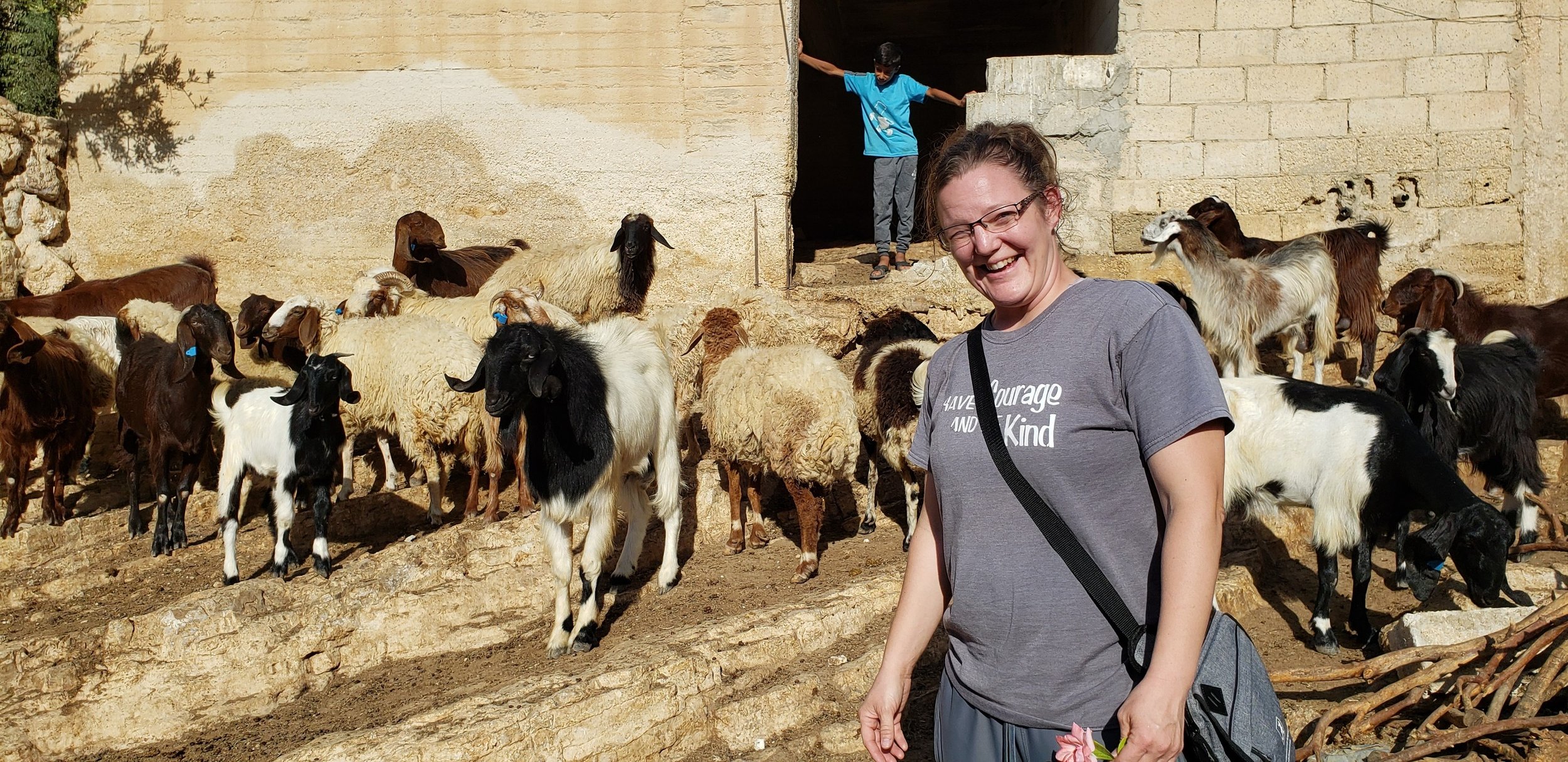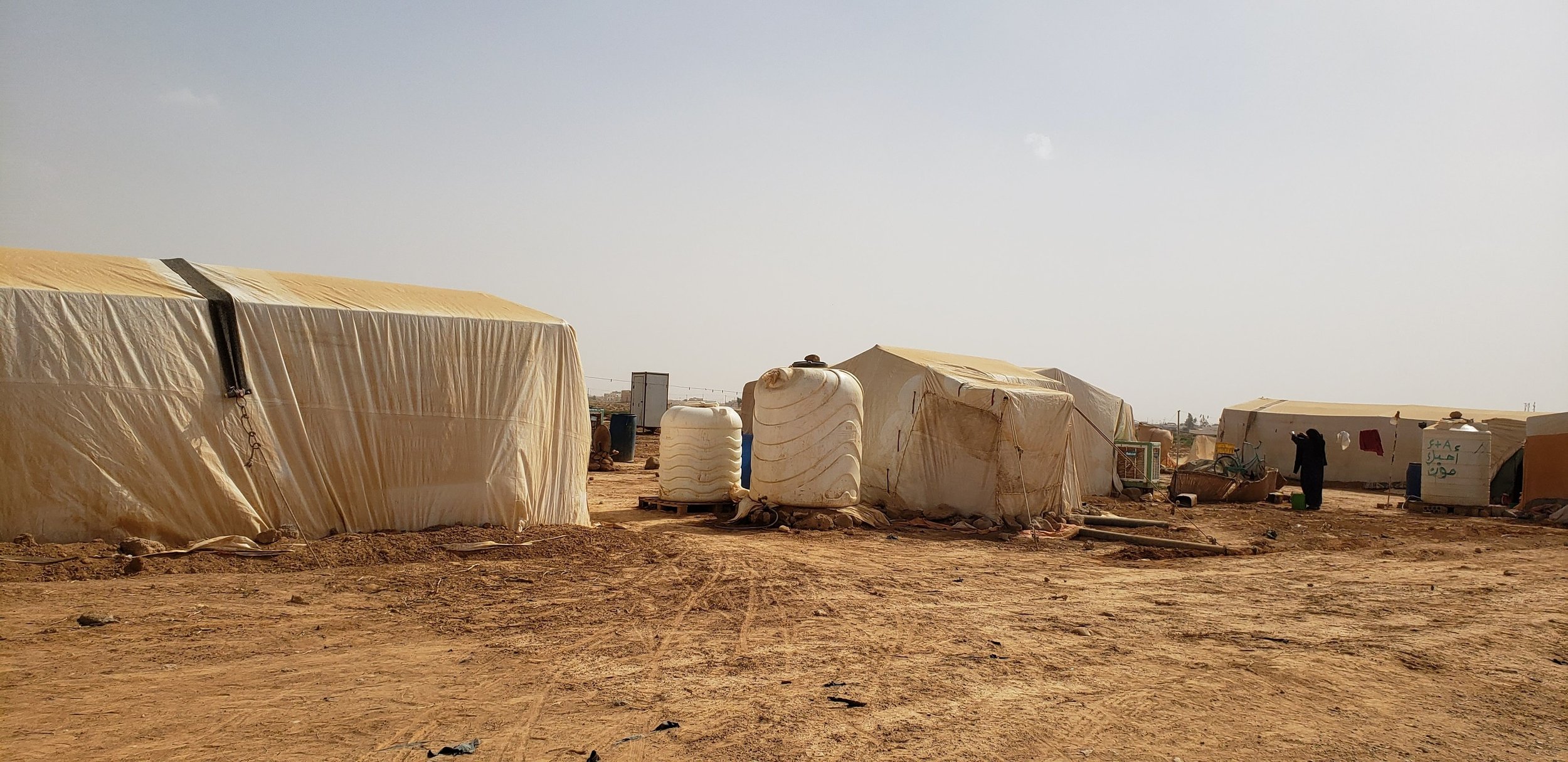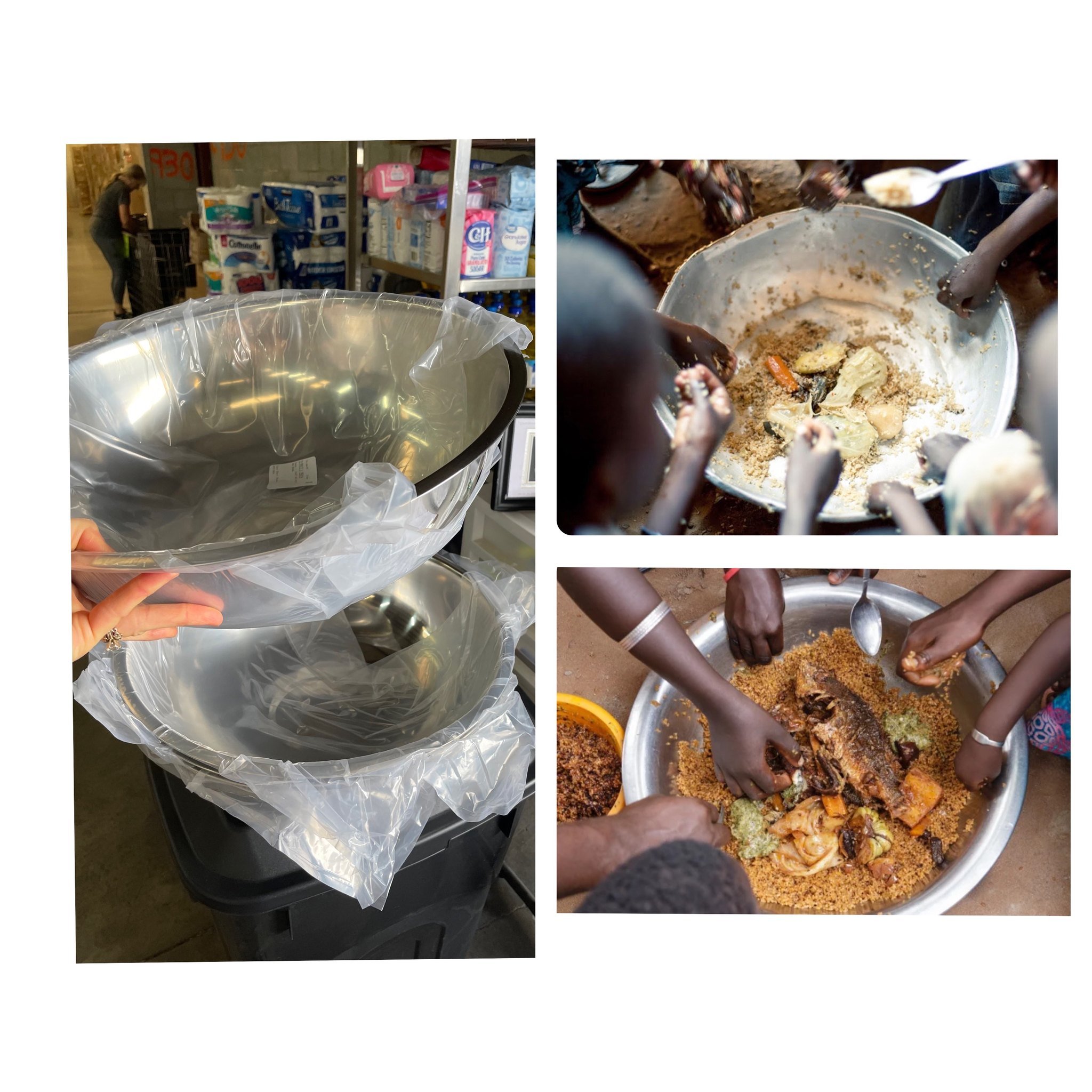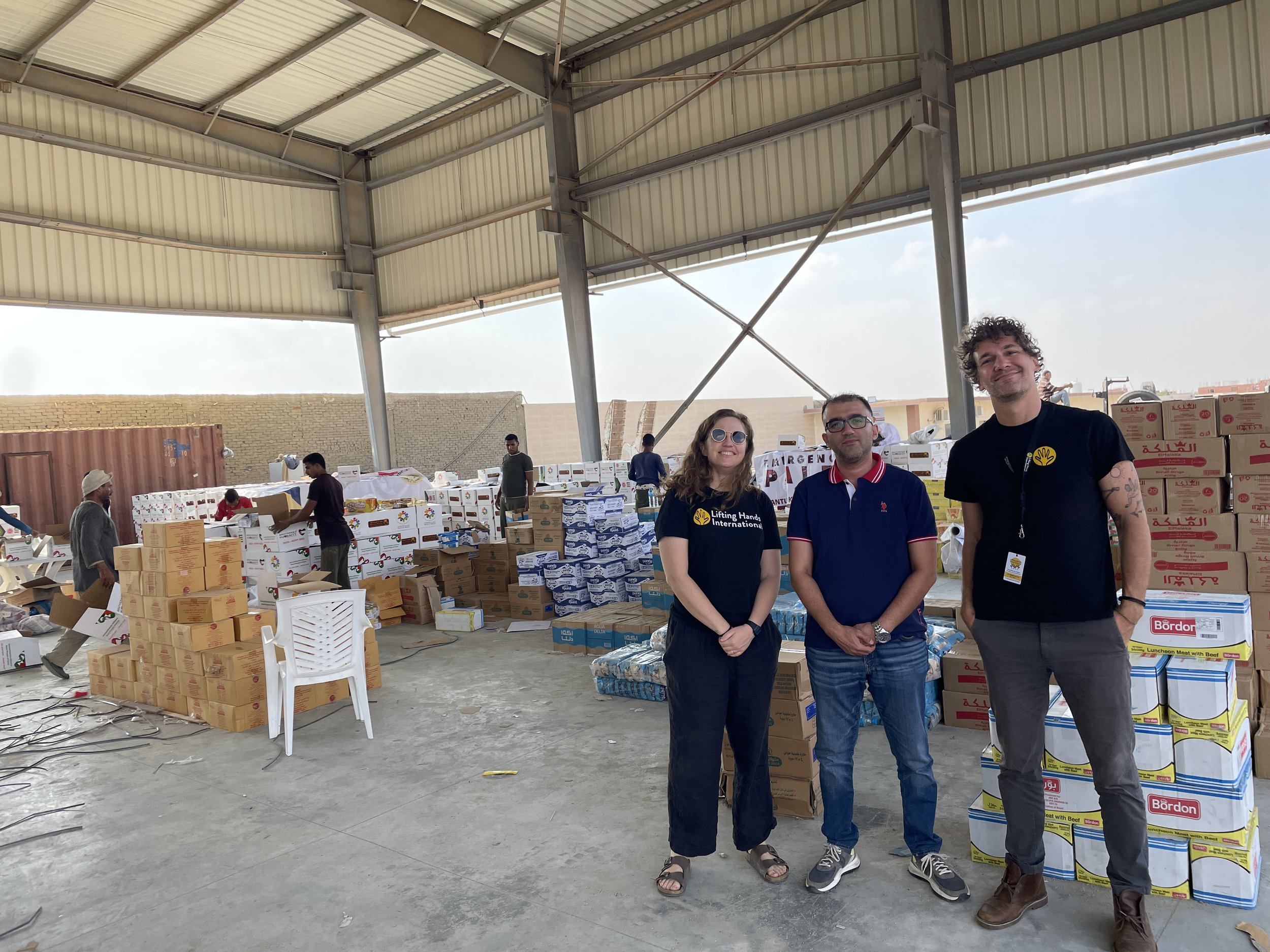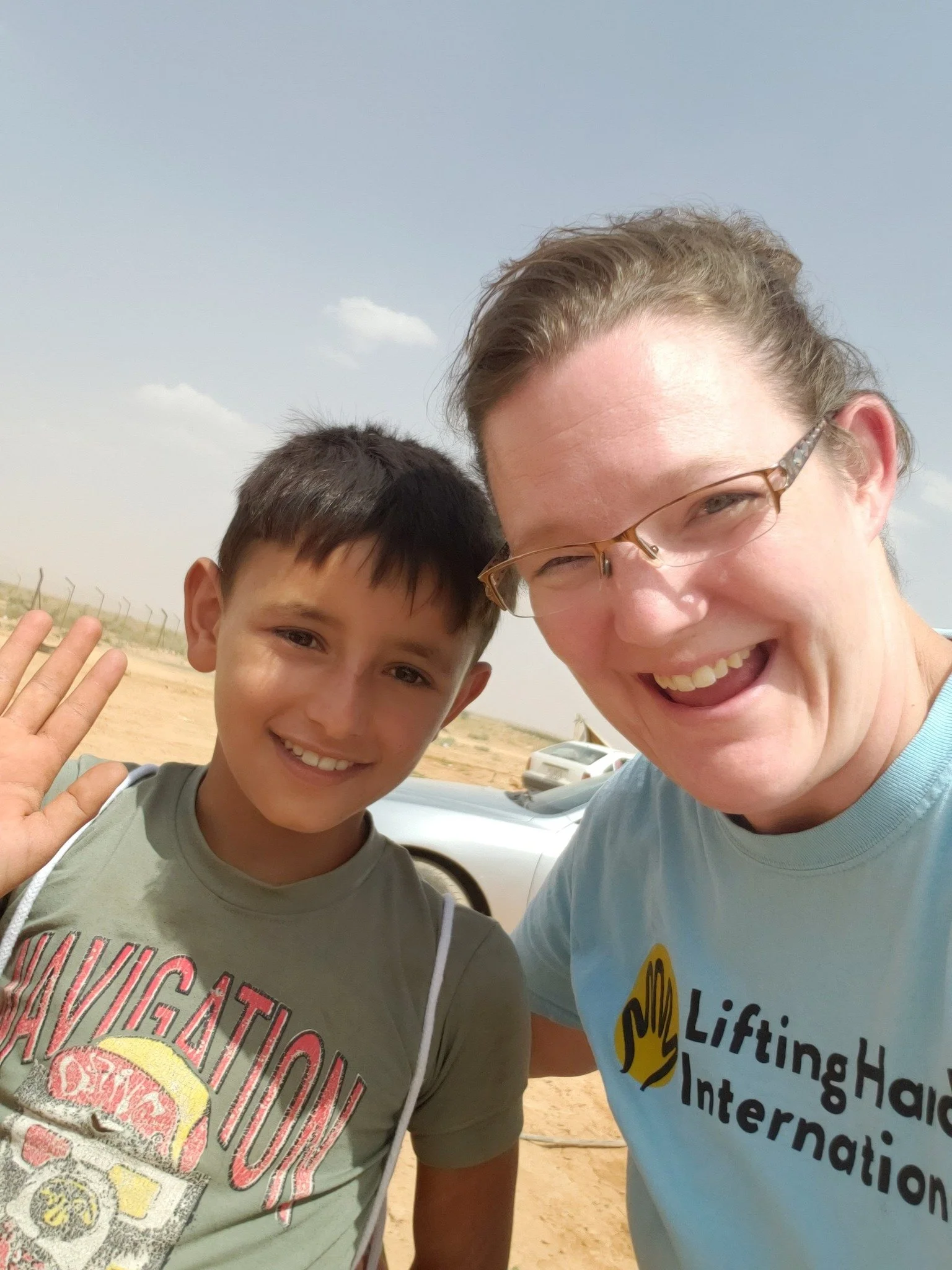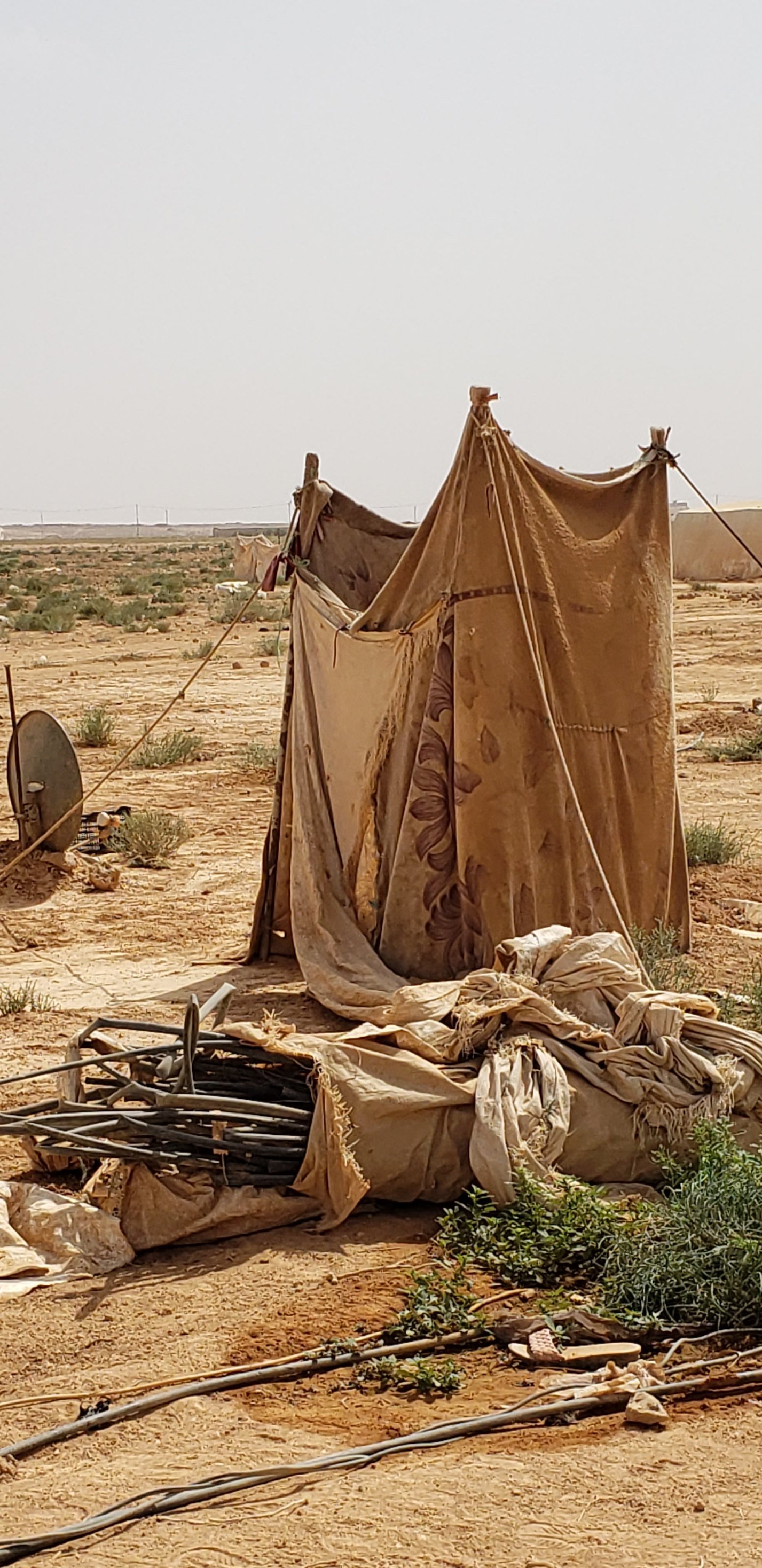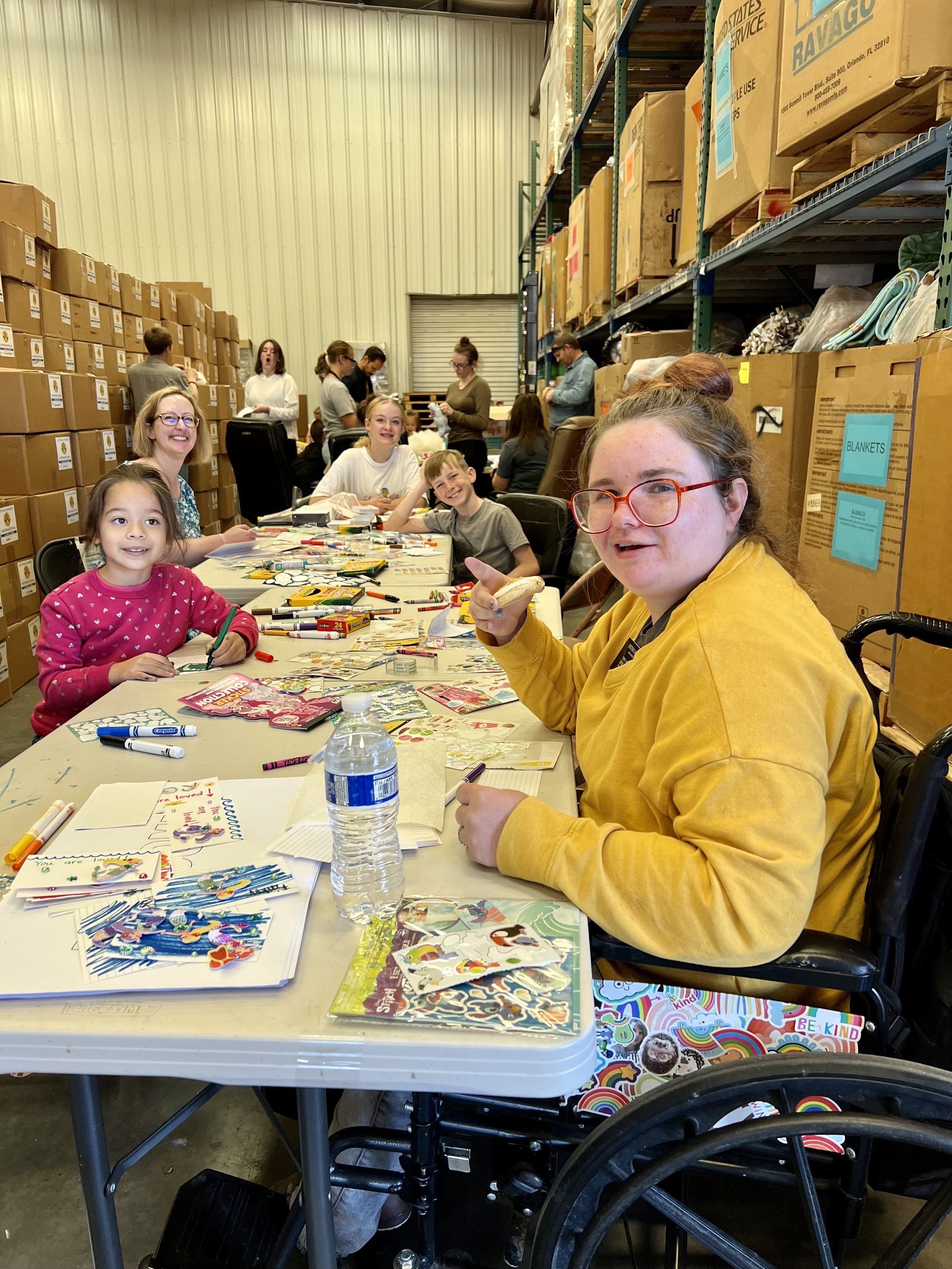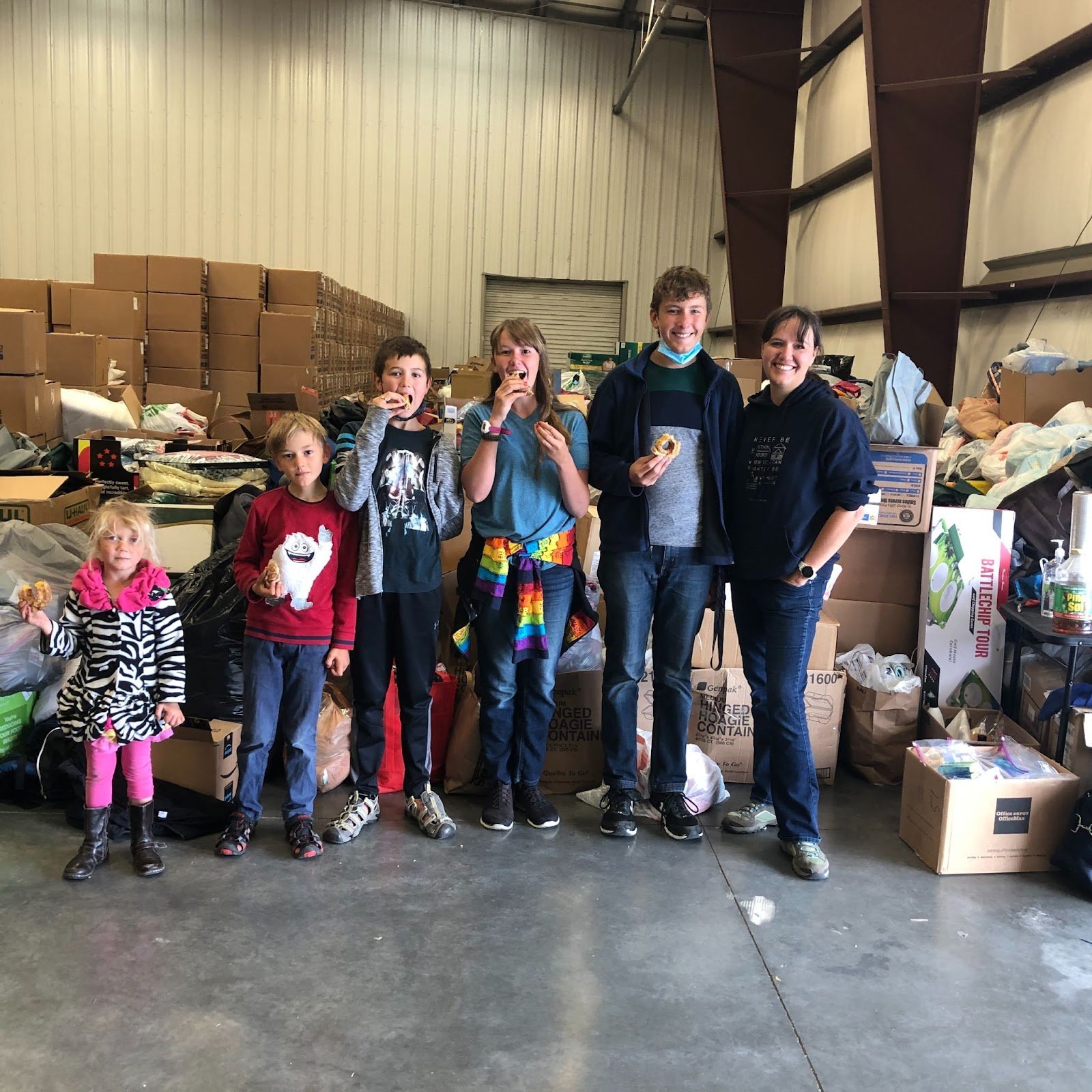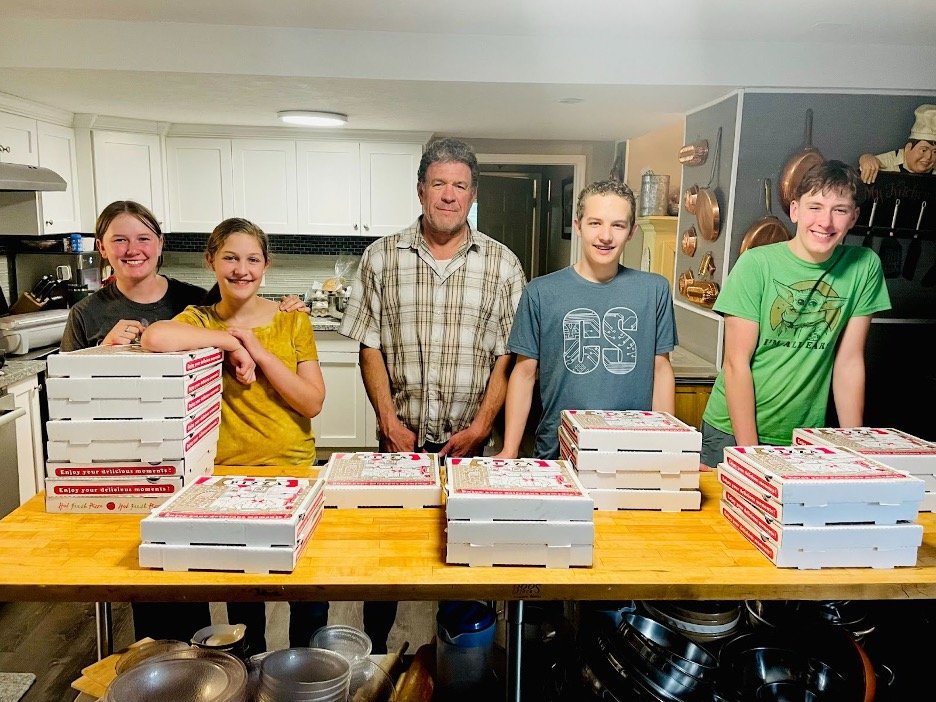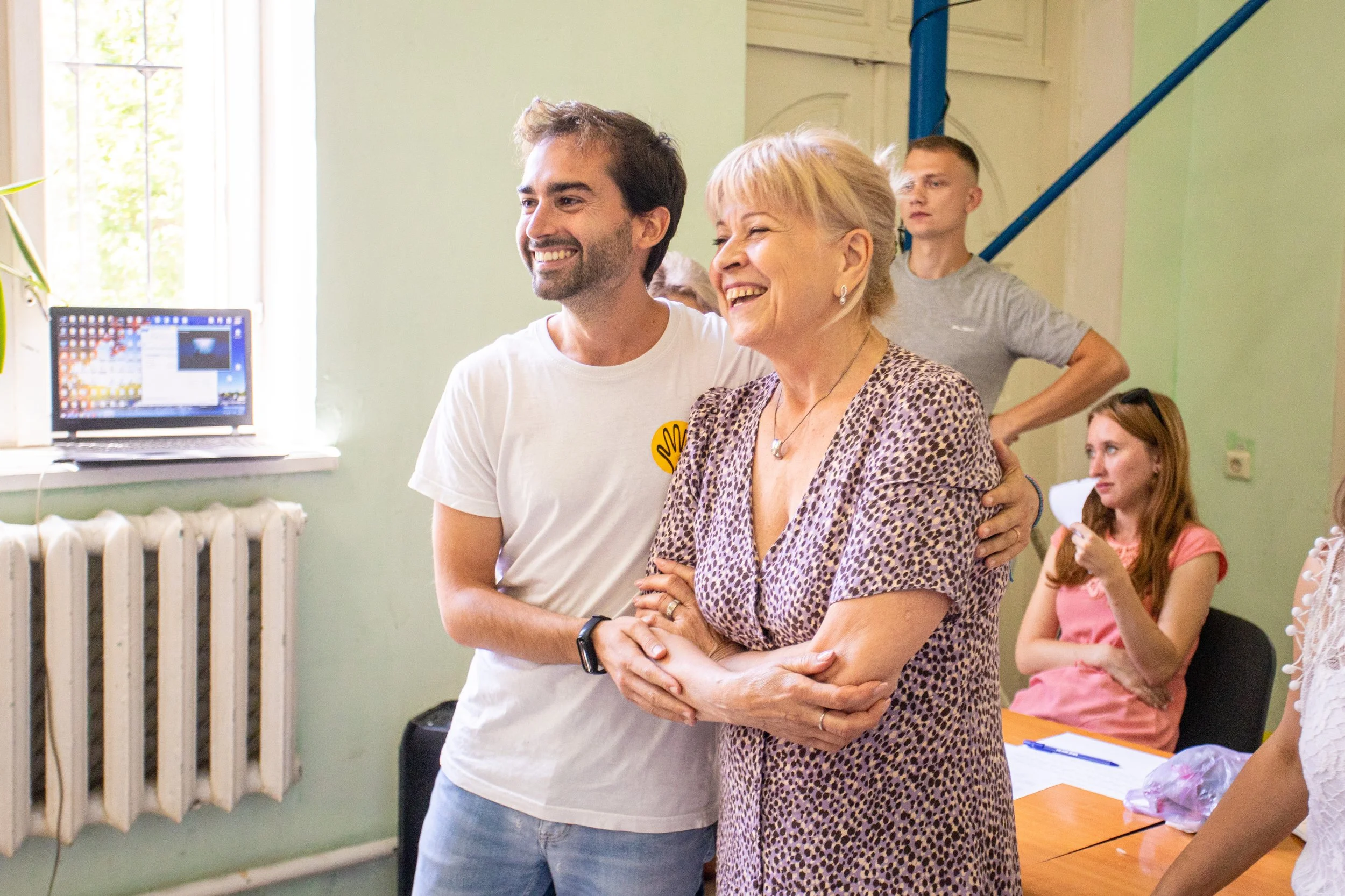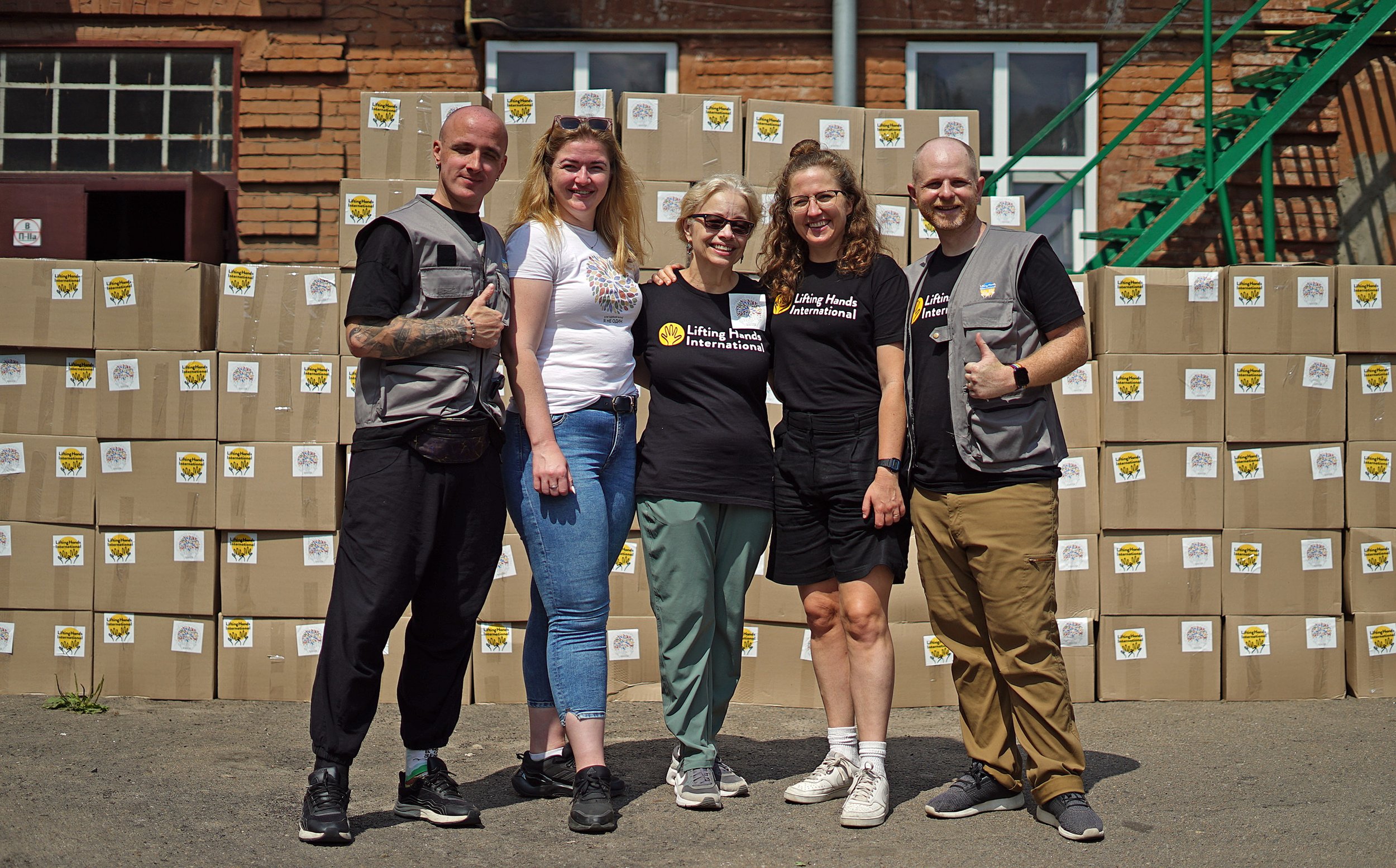by Brigid Rowlings, LHI Communications Director
LHI’s COO Walker, Director of Monitoring and Evaluation Jaron, and Founder and Director Hayley distributed aid to survivors of the earthquakes that devastated Turkey and Syria in February.
Looking back over the past year, we cannot believe all you have helped us to do! Here are the highlights!
The LHI Community Center in Serres, Greece
LHI’s Director of Monitoring and Evaluation Jaron and founder of our Utah programs Carlissa lent some elbow grease to improvement projects at the LHI Community Center in Serres.
It was a year of continued growth and innovation at the LHI Community Center, which is located near two refugee camps in Serres, Greece. The LHI Greece team was thrilled to receive new computers for the education program and new shelving for the community center’s aid warehouse. After talking with the women who attend programs at the Female Friendly Space, the team also adjusted the way we distribute clothing, school supplies, baby items and other aid. Instead of handing out parcels, the team instead created “free shops” where beneficiaries can select their own items. This small change not only provides people with a sense of dignity, but also brings a lot of excitement and joy.
The LHI Greece team set up a free shop where parents could shop for baby items including these handmade teddy bears.
utah programs
LHI team members and volunteers loaded this container of aid for Jordan in October.
Our Utah team prepared and shipped 18 containers of material aid to places like Bangladesh, where thousands of Rohingya refugees living in a large refugee camp in Cox’s Bazar were impacted by a fire in March, Afghanistan, where 6.6 million people have been internally displaced by conflict and natural disasters, and Gaza, where over 80% of the population has been displaced. The team also sent 7 shipments to the US/Mexico border to help shelters there provide warm clothing, hygiene products, and baby kits to migrants.
The US Office for Refugee Resettlement provides local resettlement agencies with a list of items that must be in apartments of resettled refugees. If the items aren't donated, they must be purchased from the family's small stipend. LHI's Utah team relies on donations from you to keep our warehouse stocked so that we can provide all the items resettled refugees need!
The Welcome Program has grown so much that we had to expand our warehouse! So far this year, LHI volunteers have set up 285 apartments for refugees resettling in Utah. And, in addition to our long-standing partnerships with the International Rescue Committee and Catholic Community Services, LHI is now working with Cache Refugee and Immigrant Connection to make sure that resettled refugees in Logan, Utah come home to an apartment furnished with everything they need.
ukraine
The battery powered incubators you helped us provide put to good use at Bashtanka Hospital in Mykolaiv, Ukraine.
Last year, we asked you to help us get Ukrainians through a cold and uncertain winter and you responded! We were able to provide generators, battery powered infant incubators, sleeping bags and long underwear throughout Ukraine. Our teams in Ukraine have also been able to get consistent material, medical and psychological aid to frontline communities all year long.
LHI's Ukraine country director Serhii (center) organized LHI's response to the dam collapse, including finding this truck which pumped thousands of tons of water out of homes and businesses.
When the Kakhovka Dam in Kherson province ruptured in June, our teams responded not only by helping those displaced from their homes, but also by pumping thousands of tons of water out of homes and businesses.
Moldova
Participants in the Story Time Project performed some of the Ukranian folk tales they had read for family and friends!
Looking back on all the work our Moldova team has done with Ukrainian refugees, it is hard to believe that our community center in Balti and our Storytime Project are not even a year old! Both programs provide social emotional support activities for participants and keep Ukrainian language and culture alive.
Children at the LHI Community Center in Balti participate in a yoga class, part of the social emotional supports offered to Ukrainian refugees.
jordan
LHI Founder and Director Hayley Smith toured one of the modular classrooms LHI was able to build for Syrian refugee children in Jordan.
In Jordan, it’s all about kids and kids! The first set of kids are the Syrian refugee children who have benefitted from the 3 modular classrooms we built this year. Because Jordanian schools are already at capacity, building classrooms means that Syrian children can attend school.
This family turned the 2 milk goats they received from LHI into a herd of 25 in just 2 years!
The second set of kids are the 1,200 Shami milk goats we have distributed to Syrian refugee families. The families who benefited had been goat herders in Syria, but had to leave their herds behind when they fled civil war. Having milk goats allows these families to improve their family’s nutrition and move towards self-sufficiency as they sell milk and grow their herd. One family we visited this year had turned the two milk goats they received two years ago into 25! The income they earned from goat milk and goat products allowed them to leave the refugee camp and rent a home.
emergency response
LHI's COO Walker distributed aid to an earthquake survivor in Turkey.
LHI specializes in responding to emergency situations quickly, talking to the people impacted, and finding out what they most need. In February, we were able to assist both Turkish and Syrian people impacted by earthquakes by providing medical and psychological first aid, hygiene kits, and food packages.
LHI responded to the humanitarian crisis in Gaza quickly, finding partners on the ground to help us source aid and get it to civilians who need it in Gaza.
In October, we arrived in Egypt and got right to work finding the right partners to help us get aid to the over one million people displaced in the Gaza Strip. We established a partnership with the Middle East Children’s Alliance (MECA) who helped us get food and medicine into Gaza.
We Couldn’t Have Done It Without You!
Whether you are an LHI volunteer or a donor, whether you’ve tied blankets or assembled hygiene kits for a service project, or whether you are a partner or a grant provider, you are a part of our team. Thank you for your support this year. We look forward to working together again in 2024 to meet needs around the world. Simply humanitarian.















